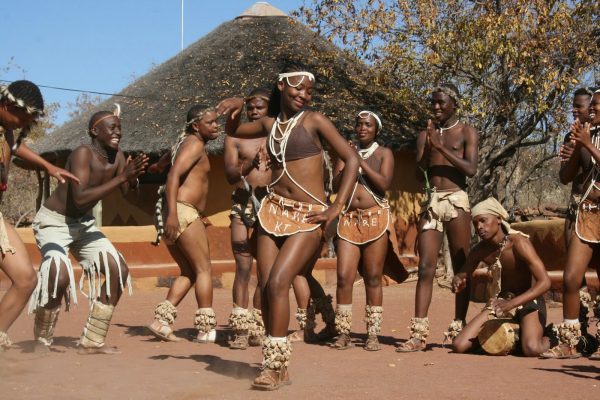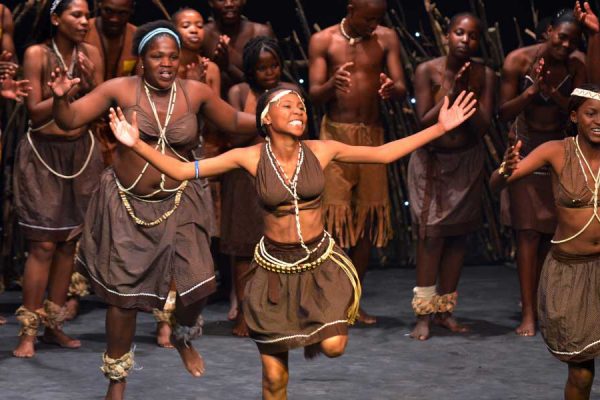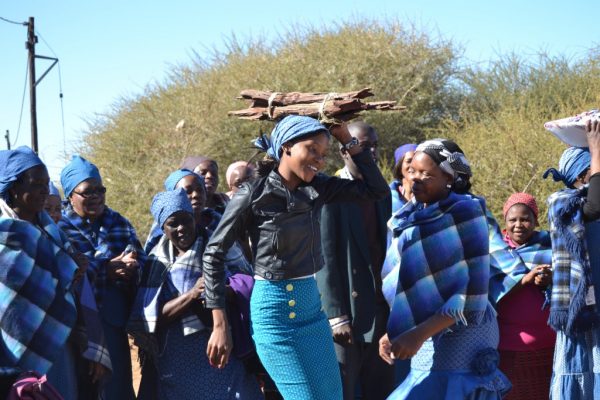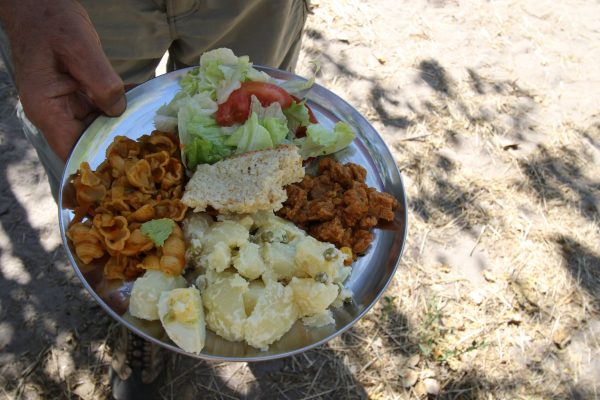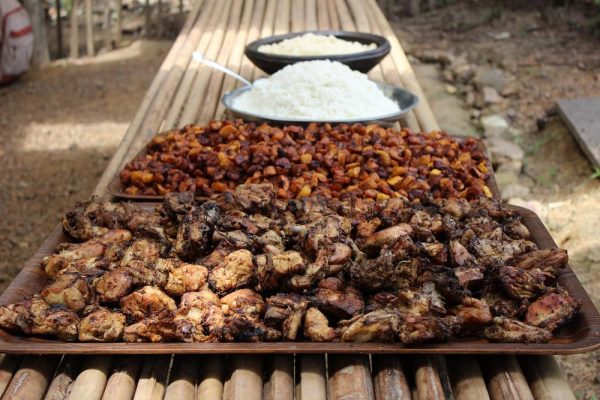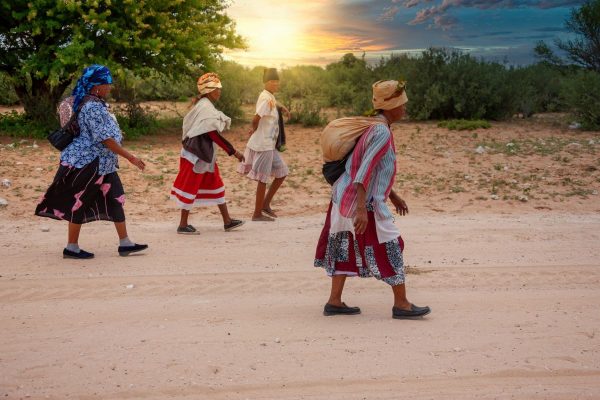Botswana Culture, Traditions | Botswana Cultural Safaris
On Botswana Cultural Safaris will also include learning about the history, the people of Botswana, and all Botswana cultural practices.
The majority of visitors to Botswana assume that safaris are solely for viewing wild animals, however, one of the greatest safaris you can do to learn more about the nation is a Botswana cultural safari there. The history of the people and all of their traditional traditions will be covered throughout your Botswana cultural tour. The culture of the Botswana people is highly distinct, and ever since they had to deal with colonialists, it didn’t matter whatever tribe you belonged to as long as there was harmony among them. There are a few traditional customs that are still followed in the nation that still help people identify as Batswana, despite the western world’s infiltration into the country’s culture.
The official language of Botswana is English, however, Setswana is the country’s primary tongue. The English language is widely spoken in Botswana, making it simple for visitors to communicate. The Kalanga language, Bushman language, Kgalagadi language, and Sindebele language are among the other languages that are spoken. Despite the presence of other religions like Islam and Hinduism, Christianity is the one that is most often practiced in Botswana.
The Culture of the Botswana People
In Botswana, there are several diverse tribes that coexist peacefully while maintaining their own distinct customs and values. The rituals that each tribe does, however, are radically different from one another, which distinguishes them from one another despite the fact that the tribes share some traditions.
The Batswana handshake does not differentiate between men and women while exchanging greetings. Locals typically perform this handshake, which involves extending the left arm to clasp the right forearm. The elderly are greeted when you are on your knees in the northern region of Botswana.
In Botswana, signs are used to facilitate communication when words are ineffective or when a person is unable to comprehend what you are trying to say to them. But using your middle finger to point at someone or raising your middle finger are some gestures that are exceedingly impolite. A tour guide who can assist you with translations is preferable if you cannot learn sign language, yet it won’t be so bad if you take a few courses in the national language to facilitate contact with the people.
The greatest method to determine whether you can trust someone, according to the Batswana, is to make eye contact. When two individuals are conversing while gazing each other directly in the eyes, it indicates that they are attempting to determine whether the person they are speaking to is trustworthy; conversely, if one looks away while being spoken to, it indicates that they are not.
Among the customs practiced by the many tribes of Botswana are some of the following:
- Because the Batswana don’t wash other people’s underwear, even in hotels, you’ll find a number of laundry baskets set up in your room so you may wash your own underwear.
- They wear various colors to church to identify the group to which they belong.
The locals are permitted to intermarry even though they all have various rules that they adhere to. However, all of these differences are ironed out so that the marriage continues as long as both sides respect each other’s ideals.
The people of Botswana
The entire population of Botswana, who are typically referred to as the Batswana, is quite small. The Setswana-speaking group and the non-Setswana-speaking group are the two divisions of the Batswana people. The Banoka people, formerly known as the River Bushmen, the Bakalanga people, who live around Francistown, the Basubiya people, who live in Kasane town, the Basarwa people, who live around the central Kalahari game reserve, the Mbukushu people, who live around the Okavango Panhandle, and the Baherero people, who live in Maun and the Okavango delta are among the non-Setswana speaking ethnic groups that.
The Batswana people, who speak Setswana, include the Bangwato people, the largest group in the nation and residents of Serowe town, the Bakgalagadi people, who live in the Kalahari and are the country’s ancestors, the Bakgatla people, who reside in Kanye, and the Babirwa people, who reside in the Tuli block.
Despite the fact that there are numerous tribes in the nation, the people of Botswana adhere to a communal way of life in which they cooperate, and their distinctive Ubuntu culture powerfully connects them. You will notice that the Batswana languages sound similar and that there is only a slight difference between them if you pay close attention to how they are spoken.
Since the beginning of time, the Botswana people have been renowned for their skill as potters and basket weavers, which has prompted travelers who enjoy pottery and crafts to travel to Botswana. Prior to beginning to produce them for sale, they were well known for their pottery-making abilities and made pots for everyday tasks like cooking and getting water. Before the pots were carried to the market, the men would always gather and shape the clay that was used to manufacture them.
In addition to making pots, they are skilled at producing other handicrafts including beads, which are primarily created by Bushmen, and baskets, which are frequently sold to visitors. When you travel to Botswana, you can explore the local communities to pick up some souvenirs and either learn how to manufacture the crafts there or simply observe how they are made.
The culture and traditions of Botswana
Locals in Botswana used to be polygamous, and all of their unions were organized by families. Most of these unions took place soon after the ceremonies ushering in adulthood for both the males and the girls were completed. Only the parents participated in the dowry negotiations prior to the wedding because the groom’s uncle always oversaw the arrangement of marriages. It was regarded as a means of preserving culture and friendship in the community, even if it is only currently practiced by the Baherero tribe and few rural villages.
Every tribe in Botswana has a totem, just like every other nation on the African continent, and they are typically animals. The totems are distinctive identifiers that are used to distinguish the communities that the Botswana people are a part of. Additionally, it is a symbol of a former event associated with a particular animal, which should be treated with respect and not consumed.
- The duiker was chosen as the Bangwato tribe’s totem animal because it is thought to have once saved their chief’s life.
- Because of their proximity to the Chobe River, which is home to numerous hippos, the Basubiya people have hippos as their totem animal.
- The Xaniqwee people have an aardvark as their totem, and according to their mythology, the aardvark fed and watered them while they crossed the Kalahari Desert on their way to Botswana.
The food in Botswana
A discussion about Botswana culture would be incomplete without mentioning the inhabitants’ divine cuisine. The Seswaa, a combination of Pap eaten with beef stew, is a staple meal for the majority of Botswana’s population. You may purchase this from any of the nation’s eateries, and if you’re lucky, you might even be able to ask a native how to create these dishes. The lunch meal is typically the main course for most Batswana people when it comes to dining, but in the evening they typically just have tea and a short snack.
Remember that you can travel to Botswana at any time of the year for a cultural safari; however, it won’t hurt if you hire a knowledgeable tour guide to accompany you across the nation to see the culture represented by the various tribes that call Botswana home. A cultural safari in Botswana is a better approach for visitors to genuinely get to know the natives and will provide you more insight into the cultural customs that are followed in the nation.

Travel lightly with Kabira Safaris Africa. We’ve offset the main sources of carbon emissions from this trip on your behalf, including transport, accommodation & waste. Learn about our Responsible Travel Policy.
How to Plan a Botswana Cultural Safari
- Describe your dream Botswana Cultural Safari.
- We get you in touch with our travel planning specialists who will help you plan your Botswana Cultural Safari.
- We make adjustments where necessary.
- Book the itinerary/Journey when ready.
Enquire now and a Travel expert will get back to you within 2-4 hours.
Chat. +256 779 820 753
Email: kabirasafaris@gmail.com


